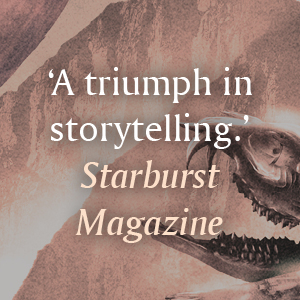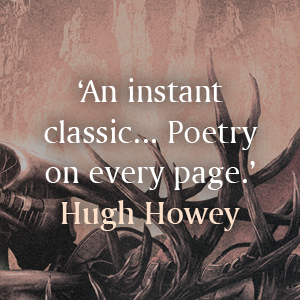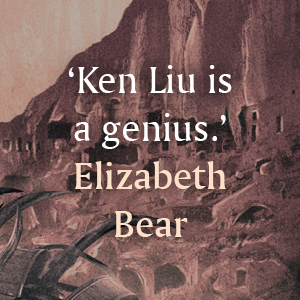Customer Services
Copyright © 2025 Desertcart Holdings Limited
Desert Online General Trading LLC
Dubai, United Arab Emirates


Full description not available





M**M
Mesmerising
Ken Liu is mostly known for his prolific output as a short story writer. He's also an author that rarely disappoints; I've liked, if not loved, all of his stories I've read. When Saga Press announced they'd snapped up his long-awaited novel it immediately went on my must-read list. The Grace of Kings is an epic Silk Road fantasy with added -punk elements; it combines traditional Chinese story elements with a Pacific Ocean islands locale and some clever technological inventions that feel organic to the setting. In other words, once again Liu didn't disappoint.What immediately sets The Grace of Kings apart is Liu's writing style. Of course the story is written in his usual beautiful prose, but he adds interesting stylistic choices in the form of recognisable story-telling elements from differing oral traditions. For example, he employs the repeated descriptive terms for people or places familiar from the Classical epics that served the bards of Greece and Rome as mnemonics and also kennings as used in Anglo-Saxon poetry. Undoubtedly, Liu incorporated more of these, but those are the ones I was already familiar with. Together they create the sense that The Grace of Kings falls in the tradition of the classic epic poems meant to be recited and told around the fire on a number of consecutive nights, but with far more modern attitudes to societal development. The pacing of the narrative, the location hopping and the sometimes rather abrupt exits - temporary or very much permanent - for various characters all add to this impression. The plot can seem somewhat sketchy, in the sense that there isn't a strong, linear plot going from A to B, which might be off-putting to some readers, but which I found mesmerising.There is so much to talk about with this book; I don't even know where to start. Liu throws in everything and the kitchen sink at his story and somehow it doesn't just stick, it works beautifully. First of all and perhaps most clearly, there are the intricate politics at the heart of the plot. While Kuni does fight outright battles, most of his battles are fought in the political field and through good governance. In fact, we see several forms of governance being implemented from a feudal system, to a federation of states, to a straight-out dictatorship and all of them have their pros and their cons. The philosophy of governance that Liu explores in the book is fascinating. But it's not just serious philosophy, some of it is honestly hilarious, for example the scheme Cogo and Kuni come up with to ensure that merchants don't cook their books and evade taxes. I also liked that one of the most successful generals in the Empire's army wasn't actually a military commander, but the chief tax collector and finance minister, whose managerial skills are what make him successful, not his prowess with a sword.I also really appreciated Liu's treatment of his female characters. The main female characters, Jia, Gin, Kikomi, Mira and Risana all had agency. True, two of them sort of get fridged--I mean their fates serve to spur one of the protagonists on, but they choose their ultimate fate themselves, so perhaps they were semi-fridged? Yet all of them find strength in their own way, whether it is Kikomi who learns to wield her beauty as a weapon or Gin who wields an actual sword in battle, they all have their strengths and goals they attain. Jia, Gin, and Risana all advocate for equal opportunities for women in a proactive way, which I really enjoyed, especially how startled the men are when their suggestions actually work. Jia also has the strength to recognise that since she and Kuni can't be together, they should have other loves and in fact there seems to be a form of polyamory in the book, especially once Kuni, Jia and Risana are all reunited. It'll be interesting to see how this situation develops in the future, whether they can build a harmonious household with the four partners and the children or whether it becomes a power struggle between the two women to be first in Kuni's affections.Before I go on to Kuni, Mata and some of the other characters, I have to mention how awesome the gods of the Islands of Dara are. Liu incorporates them into the story in an active role, having them show up in the narrative itself and in little insets, where they comment on events that went before, actually taking stock and declaring wins and losses for themselves. These scenes were brilliant and often also quite funny. What I really liked about their inserting themselves into the action, was that at one point I found myself distrusting or suspecting different characters of being incarnations of the gods and being surprised when they weren't or vice versa when someone who I hadn't suspected was revealed to be an avatar.Liu's characters are wonderful and very compelling. My favourites were Kuni, Jia, Luan, Gin, and perhaps surprisingly, Marana. What I liked about these characters was that they were unexpected; whether they were unconventional in their choices, surprisingly suited to a task they were given or just rising far beyond what anyone could have foreseen, they all do things that surprise even the gods. There are also no good guys or bad guys here. While Mata perpetrates horrible atrocities - and those are never excused in any way in the narrative - we're also shown that he doesn't do these things because he wants to do evil, but because he wants to do what is right and honourable. Similarly, Kuni is a decent man with a compassionate heart, but circumstances force him to make horrible decisions and order his troops to perform despicable acts knowing that they are awful, but the right thing to do. The book is filled with philosophical dilemmas and none of them are easily answered.I loved The Grace of Kings. I loved the sprawling breadth and depth of the narrative. I fell in love with the characters and the Islands of Dara and I can't wait to spend more time there. Liu brings something fresh and new through channelling classical traditions. If you love epic fantasy I can't recommend The Grace of Kings highly enough.This book was provided for review by the publisher.
B**O
Character driven and balanced.
I liked this book more than I was expecting to, based on reading other reviews. I think this was because the characters were quite sympathetic and their development was a greater driver than the narrative. There was a good balance between tragedy and comedy, serious and silly. In all a satisfying read.
T**M
... this book to read because I had seen a good review for it
I picked this book to read because I had seen a good review for it, both the words and the rating spoke highly so I thought it would be something a little bit different and well worth a read. It was but…Let’s start with saying that I undeniably enjoyed it. With a background drawn from Eastern history rather than European it gave it a different feel and a freshness that worked well.The story itself is a group of lands, islands, think Japan and the warlords vying to rule them. Each land has traditionally been ruled by a king, but things have changed, one has risen who would call himself Emperor and despite his conquest of the lands there are those who would see him fall. In some ways the book is a study of what it is to rule, to desire to do something good and how what one may perceive as good another may see as tyrannical.In that context there is a lot of good material as we see men forced into positions they did not expect, men climbing social ladders in a way that they would have seen impossible at the start; there are loves, compromises, friendships and broken hearts. It is a fast paced read that is very different to anything else that I have read recently in the fantasy genre, all of which stand it in good stead to be something really special, and yet…A long time ago now author Janny Wurts produced a novel called Master of Whitestorm. It had all the trademarks of an epic fantasy, but it was all about the main character, so when there was a long journey the book cut it out. This made it fast paced but it felt somehow lighter, and this is the case with Grace of Kings.It feels light, as though a lot of the stuffing has been pulled from it. We see years fly by throughout the novel, and it does not feel like it. All the hard work put into world building and character building seems to be shortchanged by the fact it feels as though it happens so fast.Liu jumps from event to event, telling some epic stories, but there is much of the detail missing of what happens in between, and for me this is where the novel is let down. It feels odd to say this about a book of 500+ pages, but there should have been a lot more of it. I want to feel the land suffer as the lord’s war over it, rather than skim the surface of a wondrously thought out lake and not see what lurks in the depths.There is so much to recommend this book, but in the end it felt as though it were a casual easy read, something that will be enjoyable from the moment you pick up the book until you turn the last page, before being forgotten like a dandelion on a breeze, and that is what will stop it becoming a great of a genre.(It might however trigger more work based on Eastern history, and that would be more than welcome.)
M**R
Staggeringly Good!
Loved this book - intelligent, imaginative and constantly surprising. For me, it reminded me of series like Dune or Game of Thrones - but drawing on Chinese history, philosophy and mythology. Some reviewers have criticised it for being difficult or slow - but it gripped me from the start and didn't let up. Other have criticised it for its breezy pace (a lot happens without the author embellishing key events). Personally, this is what I loved about it as there was never a dull moment and stories weren't unnecessarily drawn out - Liu managed to keep coming up with imaginative and interesting ideas. As soon as one thread closed, many more took its place . I look forward to reading the rest of the series over the summer (the sequels, I hear, are even better). In short: an absolute joy and I'm glad to have found a new favourite author (I really enjoyed the Pantheon TV series, which was based on one of Liu's short stories, which is how I came to read Grace of Kings in the first place. Can't wait to read the original stories that inspired that show).
Trustpilot
1 month ago
1 month ago